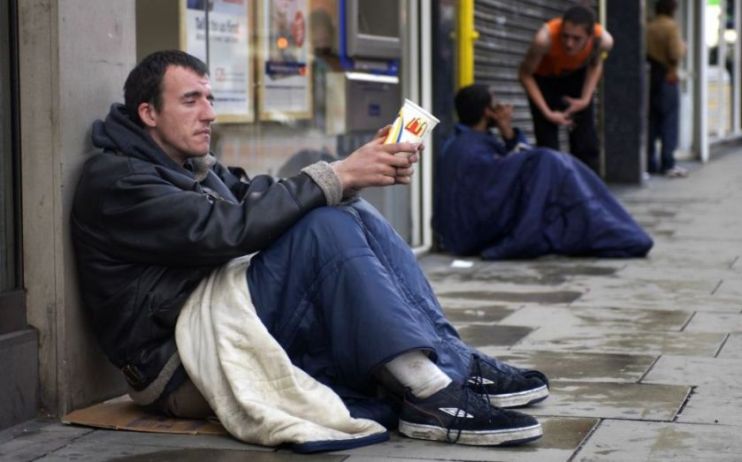Nowhere to go: One in three Brits fear ending up homeless or ‘sofa surfing’ within next five years

Nearly one in three Brits are concerned they may end up homeless in the next five years due to housing costs.
Some 31 per cent of people polled for Amnesty International UK said they are worried about ending up sofa-surfing or in temporary accommodation.
It likened navigating England’s housing system to undertaking a “gruelling obstacle course”, with accommodation the prize for those who “make it to the end”.
And it accused the Government of rationing access to housing due to a “severe shortfall” in suitable, affordable accommodation.
Legislation
The campaign group is calling for safe and affordable housing to be made a human right that is protected in law.
Legislation requires local authorities to take “reasonable steps” to try to prevent or relieve a household’s homelessness by helping them to secure accommodation for at least six months.
But not everyone is eligible for help, for reasons including their immigration status, or being deemed to have made themselves “intentionally homeless”.
These obstacles are leaving people destitute, and risking their mental and physical health and personal safety, the organisation warned.
It said the eligibility criteria “effectively” exclude thousands of people from accessing their rights, and therefore contravene the UK’s international human rights obligations.
The report, An obstacle course: homelessness assistance and the right to housing in England, reads: “England’s housing and homelessness system is effectively a gruelling obstacle course with housing as a prize for those who make it to the end.
“Many fail to get past the first barrier because they are not considered eligible for homelessness support. Others fall through trap doors along the way.”
Today’s AI report
To accompany the report, the charity commissioned polling of 2,264 UK adults by Savanta ComRes between May 27 and 29.
It found that more than half (54%) of UK adults would assume a person was experiencing homelessness for a personal reason, such as relationship issues or drug dependency.
A smaller proportion (36%) thought this was most likely due to the Government’s failure to provide sufficient housing.
Amnesty International UK said prolonged homelessness is always a result of a systematic failure of Government to enable a person’s right to a safe home, regardless of the immediate trigger.
Chief executive Sacha Deshmukh said: “Housing is a human right, not a luxury and it needs to be protected in law.
“It’s very convenient for the Government that people often assume a person is homeless as a result of personal circumstances, but in truth homelessness is a result of a systematic failure of Government.
“The absurd obstacle course which a person experiencing homelessness has to get through in order to ‘qualify’ for housing help is intended to lock them out, because there simply isn’t enough housing for the ever-growing need.
“Draconian and highly subjective rules regularly result in the most vulnerable being the least likely to be helped.”
Sacha Deshmukh
Mr Deshmukh said the system is “rigged” against many people who are subject to immigration restrictions, and the idea that people can make themselves intentionally homeless is “outdated and cruel”.
He added: “Unless housing is rightfully recognised as a basic legal human right, there is no way to hold the Government to account for its woeful failings.”
A Department for Levelling Up, Housing and Communities spokeswoman said: “Everyone deserves access to safe and secure accommodation.
“Over the next three years, we are giving councils £2 billion to tackle homelessness and rough sleeping which can be used to help anyone, including those with restricted eligibility, as long as the council is acting within the law in doing so.
“There are safeguards in place to ensure vulnerable migrants who are destitute and have other needs, such as supporting children, can receive help and can also apply to have their no recourse to public funds conditions lifted.”